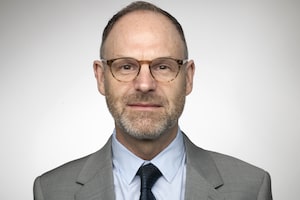
Former Soviet leader Mikhail Gorbachev presses his hands in concrete attached to a piece of the Berlin Wall during a reception at the Checkpoint Charlie in Berlin, Germany, on Nov. 7, 2014.Michael Sohn/The Associated Press
Where were you when the Berlin Wall came down?
For Generation X-ers like me, the autumn of 1989 was the defining moment of our political coming of age, in much the same way that the summers of 1789 or 1914 must have been for generations who came before. Luckily for us, everything that happened in the fall of 1989 gave us reason to be optimistic about the future.
It haunts us still, in the best way possible.
We have Mikhail Gorbachev to thank for that. He was not the only member of the Politburo to recognize that the communist experiment had failed, both materially and spiritually. But had it not been for him, the end of the Soviet empire could have been a drawn-out and bloody affair.
Instead, the Iron Curtain fell with a big party in Berlin on Nov. 9, 1989.
That happy result was a direct consequence of a commitment by Mr. Gorbachev, then the general secretary of the Communist Party of the Soviet Union, not to send tanks to quell pro-democracy uprisings that swept Eastern Europe that year.
Unlike his predecessors, who had used force to quash anti-communist movements in Hungary in 1956 and the former Czechoslovakia in 1968, Mr. Gorbachev insisted on “the sovereign right of each people to choose their own social system at their own discretion.” That paved the way for a series of peaceful revolutions across Eastern Europe.
It also removed the only remaining leg the Soviet Union had to stand on. Having failed to deliver an improving standard of living to its own people, and having been robbed by internal corruption of any moral claim to superiority over liberal democracy, the communist system ultimately collapsed when Mr. Gorbachev rejected the use of force.
“The Soviet regime’s decision not to kill people indiscriminately changed the balance of power between state and society in favour of the latter, and meant that henceforth the Soviet state would not remain in control of all aspects of Soviet life,” political scientist Francis Fukuyama wrote in The End of History and The Last Man.
Mikhail Gorbachev, Soviet leader who helped end the Cold War, dies at 91
That 1992 book built on the argument Mr. Fukuyama had initially made in a 1989 essay published in The National Interest, positing that the end of the Cold War amounted to “the end point of mankind’s ideological evolution and the universalization of Western liberal democracy as the final form of human government.”
As Mr. Fukuyama explained in his book, “for a very large part of the world, there is now no ideology with pretensions to universality that is in a position to challenge liberal democracy and no universal principle of legitimacy other than the sovereignty of the people.”
What Russian President Vladimir Putin would later call “the greatest geopolitical catastrophe of the century” was, in fact, an inevitability. By the mid-1980s, the Soviet Union was an economic basket-case. Six decades of central planning and command-and-control policies had left its industries in a shambles. A nuclear arms race with the United States had sucked the Kremlin’s coffers dry. The communist ideal of collective ownership of the means of production had been exposed as a gigantic lie.
It was a lie that Mr. Gorbachev, unlike his predecessors, summoned the courage to admit. But perestroika (restructuring) and glasnost (openness), his double-barrelled remedies for reviving the Russian economy and civil society, did not unfold as the theoreticians had predicted. Millions of Russians fell through the cracks of the transition from cradle-to-grave welfare statism (however austere) to capitalism.
Many Russians cheered the 1990 arrival of the Golden Arches of McDonald’s in Moscow’s Pushkin Square, and the availability of other Western consumer goods that followed. But history, it turned out, did not end with the conclusion of the Cold War. Liberal democracy did not triumph in Russia, and it has not flourished of late in Eastern Europe either, with autocratic and neofascist politicians rising.
Nor can the United States, a liberal-democratic beacon to the world in 1989, hold itself up any longer as a model to emulate. Its own citizens seem to have forgotten the very ideals on which their republic was founded.
In his 2018 book, Identity: The Demand for Dignity and the Politics of Resentment, Mr. Fukuyama revisited his end-of-history thesis and found it wanting. What he did not foresee in 1989 was the rise of identity politics and seemingly opposing movements such as Black Lives Matter and Make America Great Again.
At their core, Donald Trump’s MAGA supporters are not really that different from BLM activists in that what they are all basically seeking is recognition, he argued. But the core tenets of liberal democracy – freedom and equality – cannot accommodate identity politics which, like nationalism, never ends well.
History, then, might not be over. But we should all be forever grateful to Mr. Gorbachev for moving it forward.
Keep your Opinions sharp and informed. Get the Opinion newsletter. Sign up today.
 Konrad Yakabuski
Konrad Yakabuski